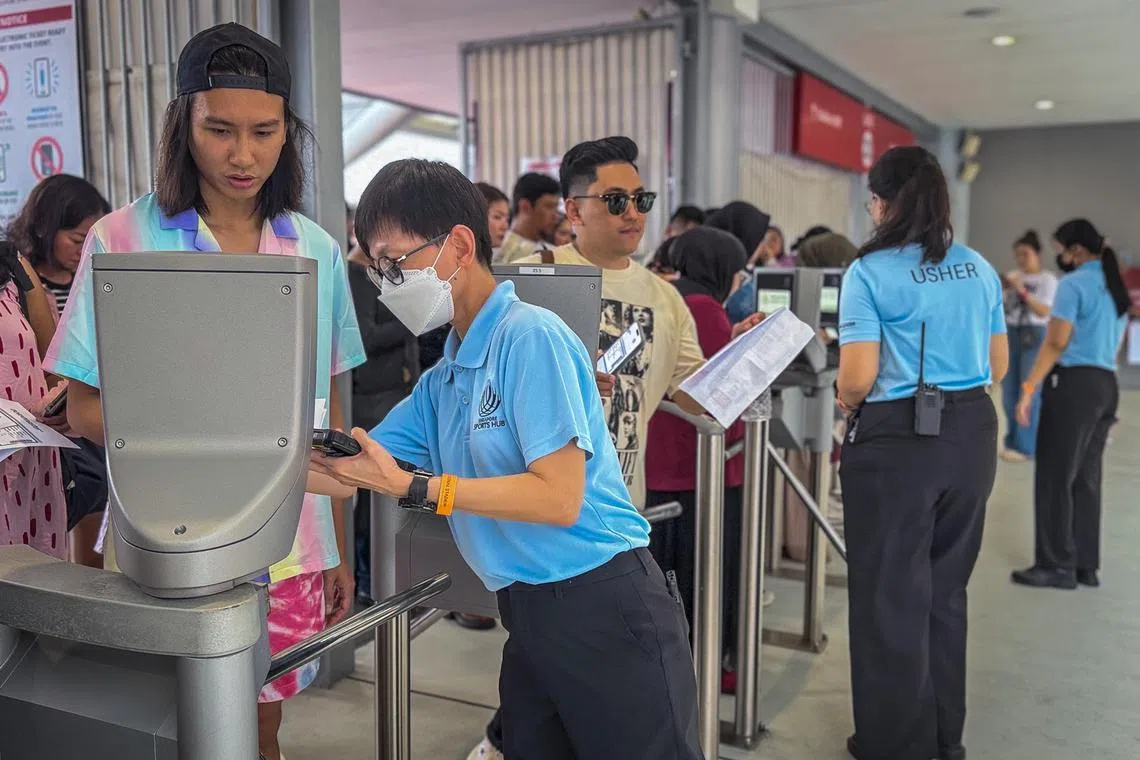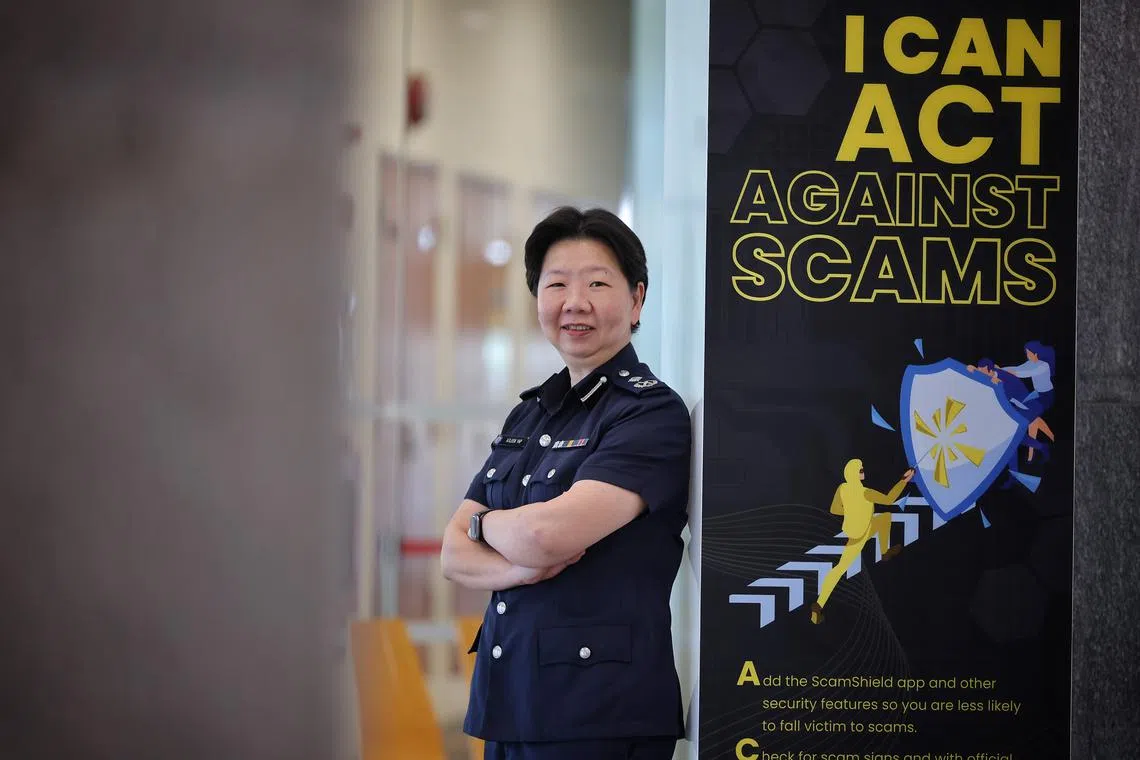Riots, stampedes at major events a concern if more not done to curb concert ticket scams: Experts
Sign up now: Get ST's newsletters delivered to your inbox

Ushers helping Taylor Swift concertgoers to scan their tickets at the National Stadium earlier in March.
PHOTO: SINGAPORE SPORTS HUB
Follow topic:
SINGAPORE - As Singapore courts more acts to perform here
If trouble breaks out at a concert due to fans’ frustration at getting scammed and not being allowed into the venue, the consequences can be quite devastating, said some experts.
Speaking to The Straits Times in an exclusive interview on March 11, Assistant Commissioner of Police Aileen Yap said the police are concerned about not just victims falling prey to concert ticket scams, but also public order issues that could arise from their unhappiness.
AC Yap, who is also assistant director of the police’s Anti-Scam Command, said: “Imagine if a large number of fans fly all the way to Singapore and arrive at a concert venue to watch their favourite act, only to find out they cannot enter because they’ve been scammed.
“These scams can escalate to public disorder issues, and I think if it happens, the damage to Singapore’s reputation as an event venue can be very large.”
The police said that between Jan 1 and March 12, at least 1,551 victims had fallen prey to e-commerce scams involving concert tickets, with total losses amounting to at least $737,000.
At least 960 of these victims had fallen for scams involving Taylor Swift concert tickets and more than $538,000 was lost.
Swift was the first female act to headline six shows at the National Stadium
There were crowd control problems in the stadium on the first night on March 2, as fans gatecrashed the aisles in the VIP1 sections immediately surrounding the stage
Barriers were installed for her subsequent shows.
Several fans, some from neighbouring countries, were turned away at the gates due to fake or invalid tickets. They posted their experiences online.
Mr Deva Joseph, a former senior investigation officer at the Criminal Investigation Department, said most scam victims would likely realise they were scammed only at the entrance, after being denied entry.
Mr Deva, who is head of operations and compliance at Peregrine Security, which is involved in event security, security consulting and security manpower services, said: “Some people who have been cheated can turn hostile, and a riot may even happen.”
He said staff manning the entrances would feel threatened if the victims’ anger was directed at them.
He said: “Such concerts involve people’s hard-earned money, and many would have taken time to dress up and prepare for it. So being denied entry at the last minute is likely to cause disappointment, which can turn into anger.

Assistant Commissioner of Police Aileen Yap said the police are concerned about not just victims falling prey to concert ticket scams, but also the public order issues that could arise from their unhappiness.
ST PHOTO: JASON QUAH
“Ultimately, the worst-case scenario at such events would be that a riot turns into a stampede.”
Dr Lim Boon Leng, a psychiatrist at Gleneagles Hospital, said: “When there is a huge crowd, some people could have a psychological sense of being suffocated. Couple this with the fear of missing out or the human psyche to want to be first, the consequences can be scary.
“It just takes a bit of pushing in a packed area for people to start panicking and falling.”
National University of Singapore sociologist Tan Ern Ser said that while he believes the probability of a protest occurring here is low, as it is against the law, foreigners may not be aware of this and may protest as they would in their own countries.
He said: “We hear of stampedes in soccer matches, in overwhelmingly crowded outdoor events, or post-match riots fuelled by alcohol, all with tragic outcomes in terms of deaths and casualties.”
In October 2022, a crowd crush in Itaewon
That same month, a riot and stampede broke out at the Kanjuruhan Stadium
To prevent a public order issue here, AC Yap said event organisers play a key role in ensuring that sufficient resources are deployed at events and that there are processes and structures in place to manage ticketing issues. She added that artistes can remind their fans to watch out for scammers.
Mr Deva said that when he was in the police force, he had investigated cases where scalpers would buy around 100 tickets, then resell them at more than double the price.
He said concert organisers could consider allowing only the person who bought the ticket to enter the venue.
Said Mr Deva: “People are willing to travel to Singapore to attend events because this country is safe. We need to ensure that public disorder incidents do not happen here, as the negative impact can be tough to undo.”


